Research Areas
Plant Biotechnology
Ongoing Projects
Development of Tissue Culture Protocol of Date palm, Pomegranate, Teak, Guggul and Guava
Date palm:
We have selected Barhee variety for Date palm tissue culture protocol development. In the protocol, we have optimized callus initiation, callus multiplication, somatic embryo development protocol. Currently, we are optimizing of germination of somatic embryo of date palm.

Pomegranate:
We are working for plant tissue culture protocol development for pomegranate. In pomegranate, we standardize sterilization protocol, shoot induction, multiple shoot development and rooting development. Optimization of hardening protocol is ongoing.

We are trying to develop tissue culture protocol for teak. In teak, we are doing node culture and optimizing multiple shoot development. Along with this, we also developed callus induction protocol, callus multiplication, carbons source requirement and optimizing shoot induction from callus. We have also developed rooted plants in vitro by seed germination for teak.
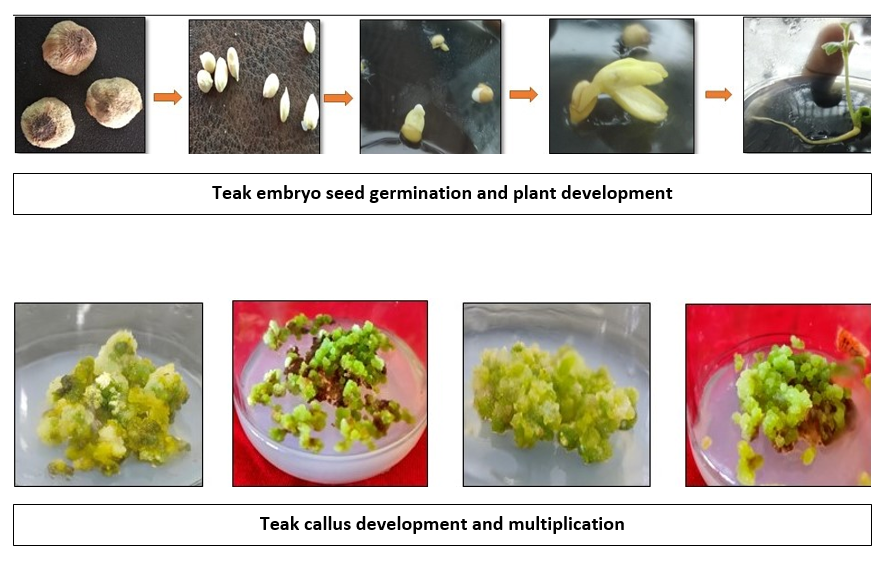
We are also working on guggul tissue culture protocol. In guggul, we optimized guggul shoot bud breaking media and shooting development. Currently, we are optimizing multiple shoot development. We also optimized callus development protocol for guggul.
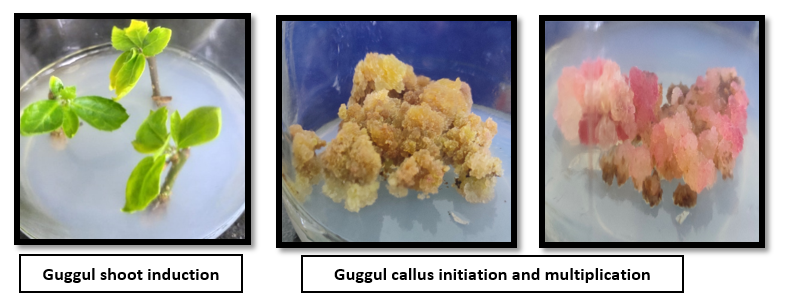
We are developing guava tissue culture protocol. In guava we resolved the problem of contamination and phenol production by explants. We also optimized media for sprouting of explants. Currently, we are optimizing multiples shoot development protocol.
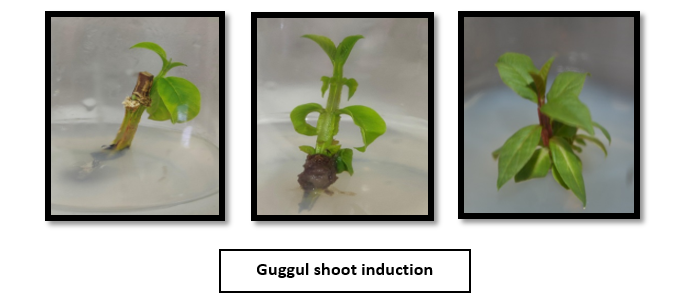
Development of transgene library for fungal disease resistance genes in crops
Among the various crops, cumin (Cuminum cyminum L.), one of the major seed spices crops, is very sensitive to different fungal pathogens. Genetic engineering has the potential to identify and incorporate disease resistance gene between two genetically different and sexually incompatible organisms, thereby increasing the horizon of its applicability. The project mainly focuses on the development of transgenic cumin resistant against fungal diseases.
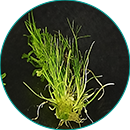
Development of cell culture protocols for guggulsterone production in Commiphora wightii (Arnott) Bhandari
Commiphora wightii (Arnott) Bhandari (Burseraceae) is a slow growing, highly branched, shrubby endangered plant. The oleo-gum resin of C. wightii (known as gum guggul), is mentioned in the classic Ayurvedic literature as an efficacious treatment for various diseases.The Government of India has included it under RET (Rare, Endangered, Threatened) category and now only few wild populations exists in the states of Rajasthan and Gujarat. Unavailability of sufficient guggul from natural resources and destruction of plant, initiated the search for alternative methods of production of guggulsterones. In this project, we are trying to develop protocols for guggul cell cultures for in vitro production of guggulsterone.
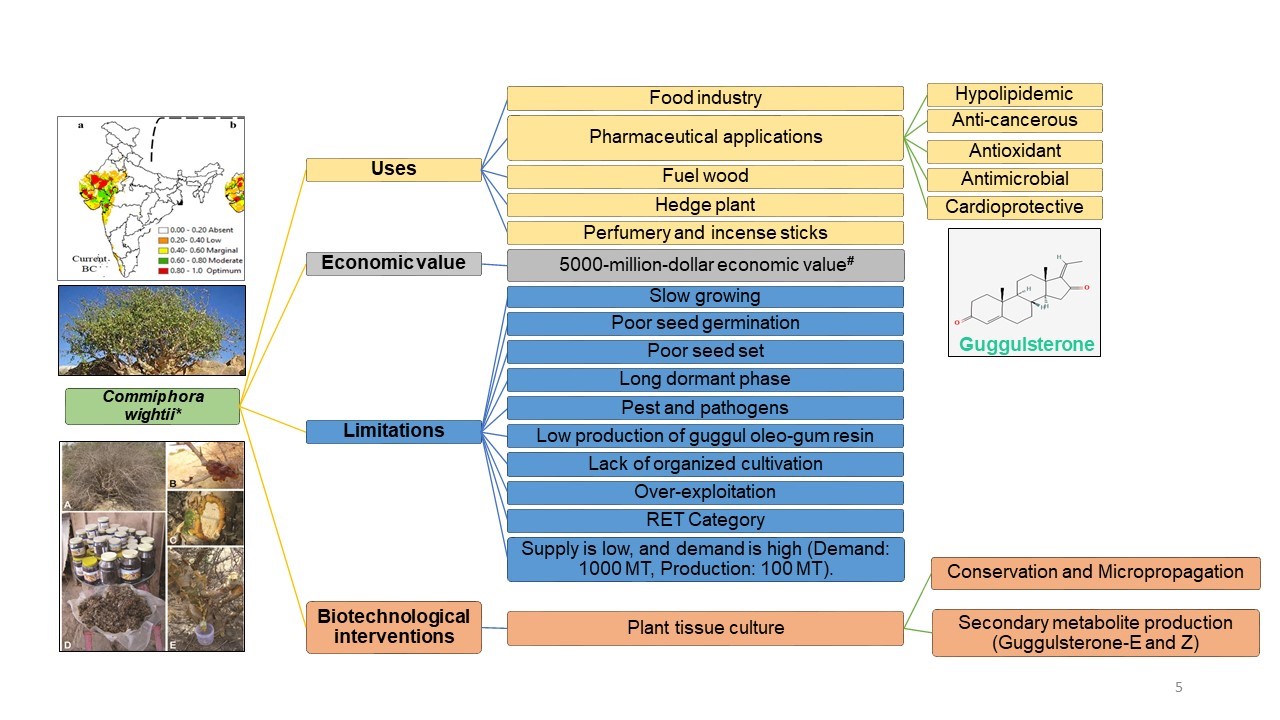
Soil nutrients, enzyme activities and microbial community in natural farming of coastal and semi-arid agroecosystems of Gujarat
Natural farming is an agroecological farming approach and use of locally prepared cow-based products (Beejamrit, Jeevamrit, Ghanjeevamrit, and others), Acchdhana, Whapasa and intercropping to ensure high soil biological activity, recycling of biomass that promotes growing crops in harmony with nature. Natural Farming offers a solution to various problems, such as food insecurity, farmers’ distress, and health problems arising due to pesticide and fertilizer residue in food and water, global warming, climate change and natural calamities. Despite increasing usage of various inputs in natural farming, the metabolic and microbial profiles have not been explored completely. The project mainly focuses on different omics approaches to decode the microbial community (metagenomics) and metabolite profile (metabolomics) in various natural farming inputs. This study is also be focused to investigate the soil characteristics, nutrient content and structure of rhizosphere microbial community using the 16S rRNA and ITS amplicon sequencing based metagenomics approach.

Completed Projects
Sex determination kit in Date palm(Phoenix dactylifera)
GBRC developed PCR based methodology for sex detection in date palm. In India, Gujarat ranked first in date palm cultivation with area more than 18286 ha and production with more than 171522 MT of fresh fruits. The date palm is dioecious plant, having separate male and female plants and identification of male and female plants are only possible after five years when palm produced first flower. GBRC has developed DNA based molecular technique to detect sex of the plant at very early age. The technique very robust and based on simple PCR test. Early detection of sex of the plant will help farmer to remove excess of male plants at an early age, avoiding growing unnecessary plants. GBRC offer service for sex detection in date palm at a very nominal cost.
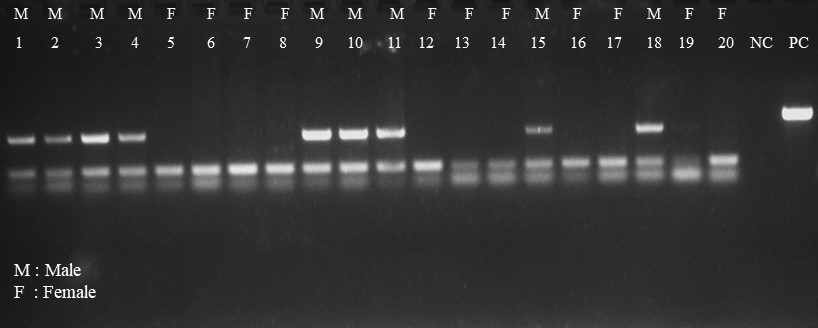
Development of Assay Kit For Detection Of Biological Adulteration in Highly Traded Herbal Products Through DNA Tags and Barcoding
• Collection and molecular identification of the medicinal plant and their corresponding adulterant materials used in the herbal product.
• Collection of respective herbal products/formulation, optimization of DNA extraction and development of species-specific primers through DNA barcoding.
• Designing of amplicon based panels for detection of adulterant.
• Development and validation of rapid and efficient PCR/RT-PCR based kit for detection of adulteration for specific formulations.



